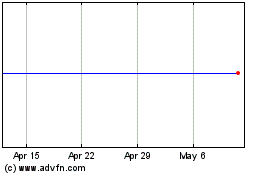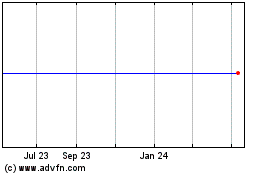By James R. Hagerty
When Dennis Picard became chief executive of Raytheon Co. in
1991, the maker of Patriot missile-defense systems and other
military gear was laying off workers. The end of the Persian Gulf
War and the collapse of the Soviet Union pointed to a drop in U.S.
defense spending.
Mr. Picard considered buying a big engineering-services company
to reduce dependence on the military. He and his colleagues kicked
around the idea of selling Raytheon's defense business. But he
finally decided weaponry was the company's heritage -- and doubled
down on it.
In early January 1997, outmaneuvering rival bidders, Mr. Picard
announced within 10 days two major acquisitions, landing the
defense operations of Hughes Electronics Corp. and Texas
Instruments Inc. for a total of nearly $13 billion.
Raytheon gained another 22 years of independence. It now is
preparing to merge with United Technologies Corp. to form Raytheon
Technologies Corp.
Mr. Picard, who died Oct. 21 at age 87, relished some of his
less-noticed feats, such as catching a bluefin tuna off New England
in the early 1990s. It weighed more than 500 pounds. Though most of
the fish was sold for sushi, he had the tail preserved and mounted
on a wall at his home in Harwich, Mass.
An engineer by training and temperament, he kept up with the
minutiae of designing and manufacturing Patriot missiles and other
Raytheon hardware. "God is in the details" read a plaque in his
office.
When he presided over meetings to review Raytheon projects,
"we'd call it root canal," said Ed Woollen, who reported to Mr.
Picard. "He'd drill down and drill down till we got to the root of
the problem."
Mr. Picard aimed to expand Raytheon's nonmilitary businesses as
a buffer against fluctuating demand for munitions. Then, in 1993,
when it seemed that the Cold War had been won, the Pentagon urged
its contractors to consolidate, creating larger and financially
stronger companies.
Mr. Picard decided that Raytheon would be a predator, not prey,
in the merger wave that ensued. He sold the Amana home-appliances
business and D.C. Heath, a publisher of textbooks, to bolster
Raytheon's finances.
Mr. Picard, who retired as chairman of the Lexington,
Mass.-based company in July 1999, also waded into politics. In the
mid-1990s, he threatened to move Raytheon manufacturing out of
Massachusetts unless the state, unions and local utilities agreed
to provide the company $600 million in cost savings over five
years. Unions accepted a three-year wage freeze, utilities reduced
their rates and the state gave it tax breaks of about $20 million a
year.
"I'm not a bully, but I'll agree with you that I'm a tough guy,
a forceful guy," Mr. Picard told the Boston Globe in 1999.
Dennis Joseph Picard was born Aug. 25, 1932, and grew up in
North Providence, R.I., where his father worked in a wool mill. He
attended La Salle Academy, a Roman Catholic school in Providence.
"I was a punk kid, and the Christian Brothers let me know I was a
punk kid," he told the Globe. "They straightened me right out."
Service in the Air Force gave him experience with radios and a
posting in Libya. He also studied broadcast engineering at the RCA
Institutes in New York and set up a TV-repair business in his
father's basement.
In 1953, he married Dolores Petit, whom he had met at a dance.
Two years later, during a job-hunting trip, he got lost on his way
to a Sylvania Corp. plant. A policeman pointed him toward a
Raytheon plant and told him that company was hiring. He got a job
as a factory technician.
Early in his career at Raytheon, he went to night school at
Northeastern University and earned degrees in electrical
engineering and management. At Raytheon, he became a specialist in
radar systems. In 1983, the company promoted him to head its
crucial missile division. His biggest priority was to fix
engineering problems with the Patriot. His success in that role
helped him win the CEO job in 1991.
The acquisition of the Hughes defense business in 1997 required
the company to mesh two large organizations with very different
cultures and procedures. "It was like the Red Sox and Yankees
suddenly having to work together," Mr. Picard said later.
The company's struggle to digest the acquisitions persisted for
years. Three months after he retired in 1999, Raytheon slashed its
forecasts for profit and revenue, and the stock price fell 44%.
Mr. Picard is survived by five children, eight grandchildren and
four great-grandchildren.
His son Dennis Picard Jr. remembers a fishing trip with his
father at a reservoir in Massachusetts. Dennis Jr. was about 8
years old, and it was a rare Saturday off work for his father. They
rented a row boat and bought pickled pork rinds as bait.
Dennis Sr. felt a tug on his line and began a long struggle to
pull in the fish. When the boat began drifting, he ordered his son
to row hard and keep it from shore. Then he told Dennis Jr. to grab
the net and help bring in a largemouth bass.
When Dennis Sr. brought the fish ashore, other fisherman praised
his catch. He told them he wouldn't have caught the fish without
help from his son. "He shared the accolades," Dennis Jr. said.
"That was his character."
Write to James R. Hagerty at bob.hagerty@wsj.com
(END) Dow Jones Newswires
November 08, 2019 10:45 ET (15:45 GMT)
Copyright (c) 2019 Dow Jones & Company, Inc.
Raytheon (NYSE:RTN)
Historical Stock Chart
From Mar 2024 to Apr 2024

Raytheon (NYSE:RTN)
Historical Stock Chart
From Apr 2023 to Apr 2024
